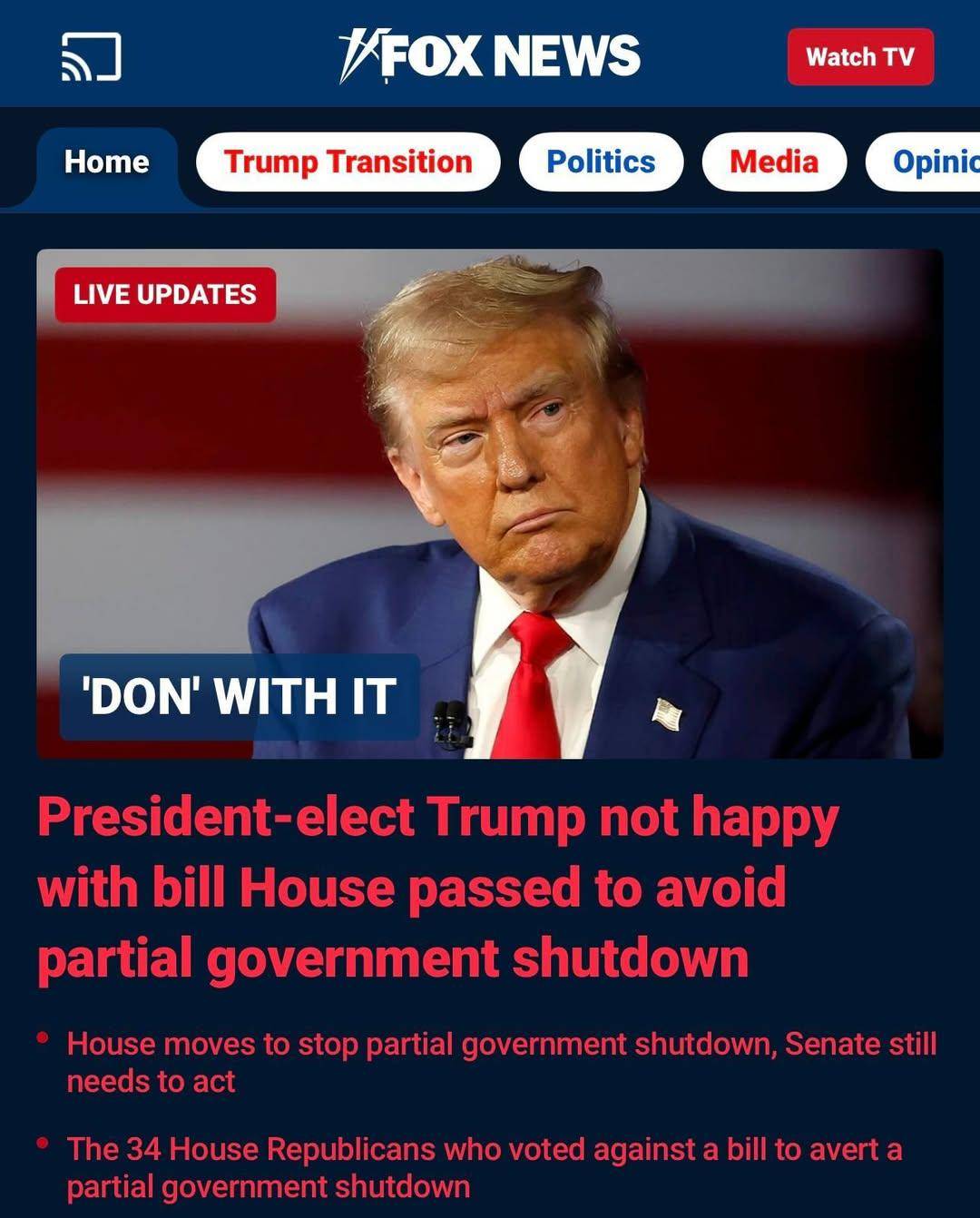Breaking News: Senate Approves Funding Bill to Avert Government Shutdown.
In a critical move to maintain government operations, the U.S. Senate passed a three-month funding bill shortly after the midnight deadline on December 20, 2024. This bipartisan legislation, approved by an 85-11 vote, ensures federal funding through March 14, 2025, averting what could have been a disruptive government shutdown during the holiday season. The bill now heads to President Joe Biden’s desk, awaiting his signature to become law.
A Race Against Time
The legislative journey of this funding bill was anything but smooth. The House of Representatives had earlier approved the measure with a 366-34 vote, reflecting strong bipartisan support. However, challenges loomed large as lawmakers worked against the clock to finalize the details. The Senate narrowly missed the midnight deadline, causing a brief lapse in funding, but acted swiftly to mitigate disruptions.
The bill allocates $100 billion for disaster relief and an additional $10 billion to support American farmers. Notably absent from the legislation is a provision to raise the debt ceiling, a contentious issue deferred for future negotiations.
Political Tensions Shape the Outcome
The passage of this funding bill was heavily influenced by high-profile opposition from President-elect Donald Trump and entrepreneur Elon Musk. Both expressed discontent with earlier versions of the bill, particularly those that included a debt ceiling increase. In response, lawmakers removed such provisions, focusing instead on immediate funding needs.
House Speaker Mike Johnson acknowledged the influence of these objections, stating, “This bill represents a streamlined approach to address our nation’s urgent funding needs while leaving room for robust fiscal debates in the months ahead.â€
Why This Matters
A government shutdown during the holiday season would have had far-reaching consequences. Essential services could have been disrupted, federal employees left without paychecks, and critical programs stalled. The urgency of the situation underscored the importance of bipartisan collaboration, even in a politically divided Congress.
While this funding bill averts an immediate crisis, it leaves unresolved questions about the nation’s fiscal future. The exclusion of the debt ceiling provision sets the stage for a significant debate in early 2025. Republican leaders have already signaled plans to propose a $1.5 trillion debt ceiling increase tied to substantial spending cuts.
Looking Ahead
As President Biden prepares to sign the bill into law, the focus now shifts to the looming fiscal challenges ahead. The next few months are expected to bring heated debates over federal spending, the debt ceiling, and long-term fiscal responsibility.
This temporary funding solution provides a brief respite but highlights the ongoing complexities of governance in a politically divided landscape. Both parties face the challenge of balancing immediate needs with long-term financial sustainability, a task that will require compromise, strategy, and perhaps even greater bipartisan cooperation.
For now, the Senate’s action ensures that government operations will continue uninterrupted, a relief for millions of Americans relying on federal programs and services. However, the road ahead remains uncertain as the nation braces for fiscal debates that could shape the trajectory of U.S. governance for years to come.
Conclusion
The Senate’s approval of the funding bill is a testament to the resilience of the legislative process amidst political challenges. As this news unfolds, it serves as a reminder of the importance of vigilance and active participation in civic affairs. Stay tuned for updates as this story continues to develop.




No comments yet
Be the first to share your thoughts!